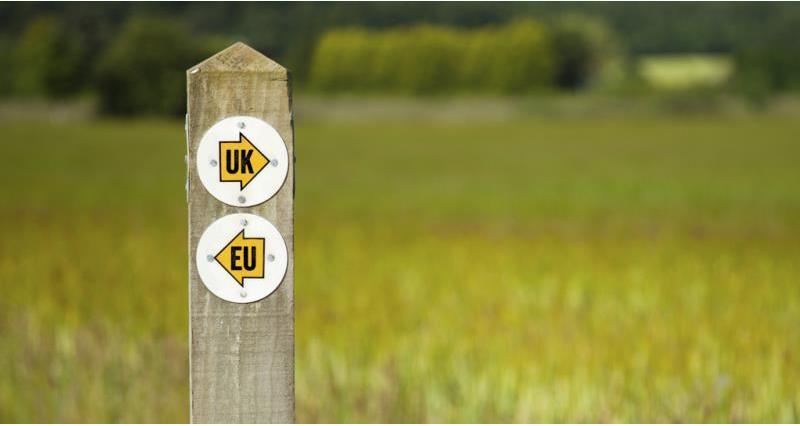What happened on March 29?
Article 50 was triggered just in time for the PM’s deadline of the end of March. This was a key watershed moment in the whole Brexit process as it was the official notification that the UK is leaving the EU and the start of the two year process. It was also key because the EU’s chief negotiator Michel Barnier would not negotiate on anything until the Article 50 notification wass received.
Then what?
The EU leaders of the other 27 give Mr Barnier the negotiating mandate at the next EU leaders' summit on 29 April. This will set out the key elements of the negotiation and what aspects they think need to be resolved. You will have perhaps seen in the press that this would have happened earlier if it hadn’t been for the to-ing and fro-ing on when the letter would be sent – blown off course slightly by a combination of the Scottish referendum discussion and dancing around the celebrations of 60 years of the EU. So essentially there is a month to wait from March 29, although it is likely that there will be noises coming from the different European capitals on what they will require.
Related...
- 'Our industry is vital to Britain,' says NFU as Article 50 is triggered
- NFU unveils three cornerstones of a new domestic agricultural policy
- Discover farming's value to Britain - key facts
- Q&A: Securing the best deal for British farming
- Our dedicated post-Brexit farm policy channel
- NFU shares vision with Shadow Defra Secretary
- Brexit timeline: 2017 so far
- Our Westminster team - fighting for farmers
- Prime Minister 'backs British farmers' in PMQs
- Farmers need flexible and competent workforce, NFU tells Peers
What will be discussed in the process?
There is a disagreement already between what will be negotiated and agreed in this process. From the EU side, Mr Barnier says he wants to negotiate the ‘terms of the divorce’ and all the issues which arise directly from that before negotiating the terms of a future relationship between the UK and EU. The Prime Minister wants these two issues to be discussed at the same time.
There are some issues which will need dealing with ahead of withdrawal – areas where the UK and EU works together, money considered owed by UK to EU and vice versa and issues over regulations that will no longer function when we leave. Future trade arrangements are also critical, although technically and legally we can default to the WTO rules (basic rules for world trade) as outlined in our Wageningen study report. What will need to be decided are things like Tariff Rate Quotas – for instance on NZ lamb. The EU allows a certain amount of NZ lamb in every year at zero tariff, a lot of which comes to the UK. This will clearly need to be resolved as we look towards trade arrangements between the UK and EU. Early on the negotiators also want to discuss EU nationals in the UK and UK national in EU – an important issue for the farming sector.
Will this actually take two years?
Once we’re past April 29, the negotiations will begin properly. There is a suspicion is that not a lot will move this year; there are the German elections coming up later in the year and there will need to be a lot of background work and agreement between the 27 member states. Article 50 itself says a member state leaves the EU in the timescale set out in the withdrawal agreement, or two years from notification. By agreement across the 27 member states this can also be extended. The negotiation process itself won’t be two years - in order to allow the European Parliament and others to ratify the agreement, Mr Barnier wants an agreement to present to them in October 2018. Therefore it’s a much-reduced timeline of 18 months, and there will also need to be some sort of vote in Westminster and time between an agreement being agreed and it coming into force. This makes the issue around the need for transition (something we have been calling for) or ‘phased implementation’ as the Prime Minister calls it, even more critical.
And what about the Great Repeal Bill?
The so-called Great Repeal Bill will transfer all EU law and regulation into UK law so that they continue to function in the UK come 2019. A government white paper is expected soon on what this great repeal looks like, and the bill itself will be presented in the summer. The government intention is continuity – to transfer things as they are into UK law. They are not in seeing this as an opportunity to rework vast tracts of EU law into a UK-friendly way – this is a job for later as there is not the manpower and resource to do this at this stage. Some would argue this is the ‘great continuity bill’ and there will therefore be a lot of work for us as an organisation to challenge and amend those regulations and frameworks in the bill in due course in order to reduce and refine legislation which has an impact on farm businesses in the future.
Where can I read more?
Read a Q and A with our director for EU exit and international trade, Nick von Westenholz, here, see details of Meurig’s recent meeting with the Secretary of State this week here and read a short summary of our Brexit policy here.
